Civic Media Presents the Wisconsin Book Festival 2025!
Civic Media is proud to be a sponsor for the the 2025 Wisconsin Book Festival!

We believe it’s never a bad time to get lost in a book, and so do our friends at the Wisconsin Book Festival! The annual event celebrates a variety of literature by bringing in new and accomplished authors to Madison for a week-long series of readings and conversations. Whether you’re a non-fiction fanatic or a patron of poetry, there’s an event for all ages and types of readers.
And the best part? All Wisconsin Book Festival readings are FREE to attend! Fill up your calendar with readings and get the chance to meet your newest favorite author.
WI Book Fest 2025 Highlights:
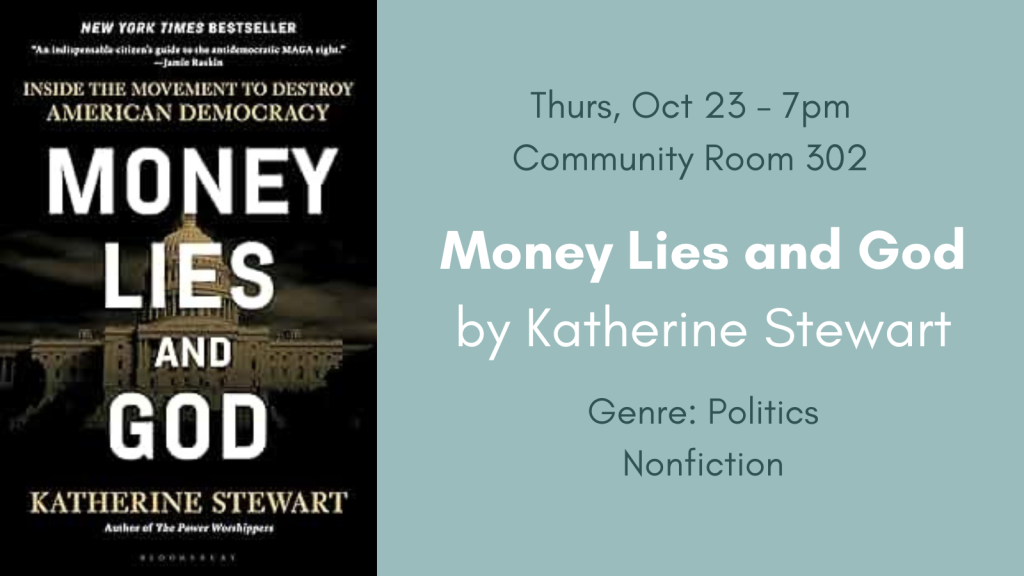
Presented in partnership with Civic Media! Katherine Stewart will be in conversation with Matt Rothschild, host of Wisconsin Forward and author of Twelve Ways to Save Democracy in Wisconsin.
Why have so many Americans turned against democracy? In this deeply reported book, Katherine Stewart takes us to conferences of conspiracy-mongers, back-room strategy gatherings, and services at extremist churches, and profiles the people who want to tear it all down. She introduces us to reactionary Catholic activists, atheist billionaires, pseudo-Platonist intellectuals, self-appointed apostles of Jesus, disciples of Ayn Rand, women-hating opponents of “the gynocracy,” pro-natalists preoccupied with the dearth of white babies, Covid truthers, militia members masquerading as “concerned moms,” and battalions of spirit warriors who appear to be inventing a new religion even as they set about attacking democracy and its foundations.
Along the way, she provides a compelling analysis of the authoritarian reaction in the United States. She demonstrates that the movement relies on three very different groups-the funders, the thinkers, and the foot-soldiers-each with different beliefs and often conflicting aims. Stewart’s reporting and comprehensive political analysis helps reframe the conversation about the moral collapse of conservatism in America and points the way forward toward a democratic future.

Seventeen-year-old Phoebe was never interested in her birth family. But on the cusp of her high school graduation, her adoptive mother, Greta, insists on a visit to meet her biological parents and siblings. The encounter is a jolt, a revelation that derails Phoebe.
With the help of her best friend Luna, Phoebe runs away—as far as their friend Patrick O’Conner’s chaotic home, where she hopes to go unnoticed among his thirteen siblings. But when Phoebe asks Patrick to chop off her hip-length hair, she’s suddenly transformed. Patrick’s older brothers can’t help but notice the striking, Peter Pan-like stranger who has suddenly appeared in their midst.
What starts as an adolescent rebellion soon spirals into a whirlwind of self-discovery and unexpected connections. As she grapples with her shifting identity and strained relationships, Phoebe must navigate the tumultuous road out of girlhood and chart a new and unknown course.
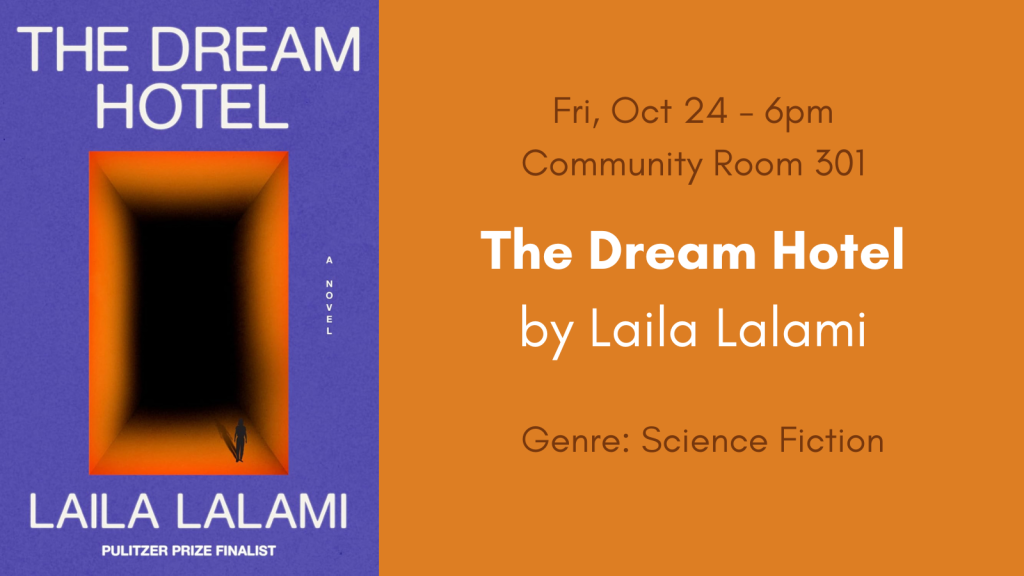
Sara has just landed at LAX, returning home from a conference abroad, when agents from the Risk Assessment Administration pull her aside and inform her that she will soon commit a crime. Using data from her dreams, the RAA’s algorithm has determined that she is at imminent risk of harming the person she loves most: her husband. For his safety, she must be kept under observation for twenty-one days.
The agents transfer Sara to a retention center, where she is held with other dreamers, all of them women trying to prove their innocence from different crimes. With every deviation from the strict and ever-shifting rules of the facility, their stay is extended. Months pass and Sara seems no closer to release. Then one day, a new resident arrives, disrupting the order of the facility and leading Sara on a collision course with the very companies that have deprived her of her freedom.
Eerie, urgent, and ceaselessly clear-eyed, The Dream Hotel artfully explores the seductive nature of technology, which puts us in shackles even as it makes our lives easier. Lalami asks how much of ourselves must remain private if we are to remain free, and whether even the most invasive forms of surveillance can ever capture who we really are.
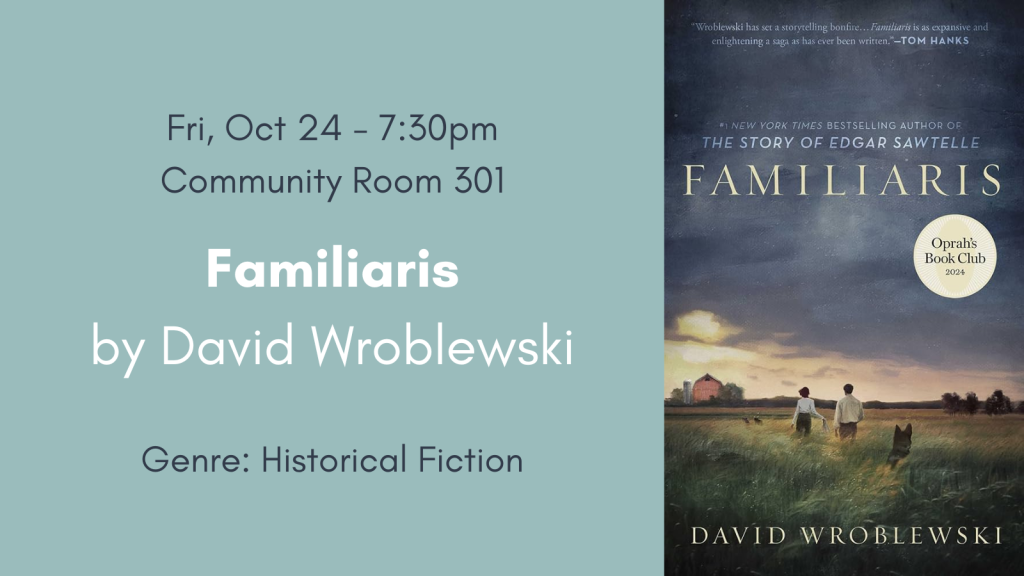
It is spring 1919, and John Sawtelle’s imagination has gotten him into trouble … again. Now John and his newlywed wife, Mary, along with their two best friends and their three dogs, are setting off for Wisconsin’s north woods, where they hope to make a fresh start—and, with a little luck, discover what it takes to live a life of meaning, purpose, and adventure. But the place they are headed for is far stranger and more perilous than they realize, and it will take all their ingenuity, along with a few new friends—human, animal, and otherworldly—to realize their dreams.
By turns hilarious and heartbreaking, mysterious and enchanting, Familiaris takes readers on an unforgettable journey from the halls of a small-town automobile factory, through an epic midwestern firestorm and an ambitious WWII dog training program, and far back into mankind’s ancient past, examining the dynamics of love and friendship, the vexing nature of families, the universal desire to create something lasting and beautiful, and of course, the species-long partnership between Homo sapiens and Canis familiaris.
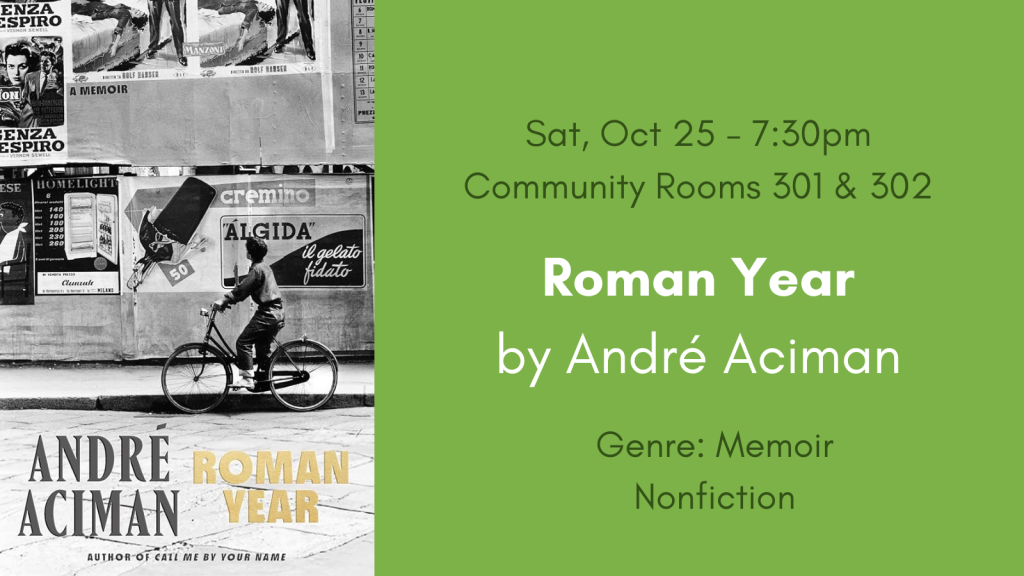
André Aciman captures the period of his adolescence that began when he and his family first set foot in Rome, after being expelled from Egypt. In this memoir, the author, a genius of “the poetry of the place” (John Domini, The Boston Globe), conjures the sights, smells, tastes, and people of Rome as only he can. Aciman captures, as if in amber, a living portrait of himself on the brink of adulthood and the city he worshipped at that pivotal moment. Roman Year is a treasure, unearthed by one of our greatest prose stylists.
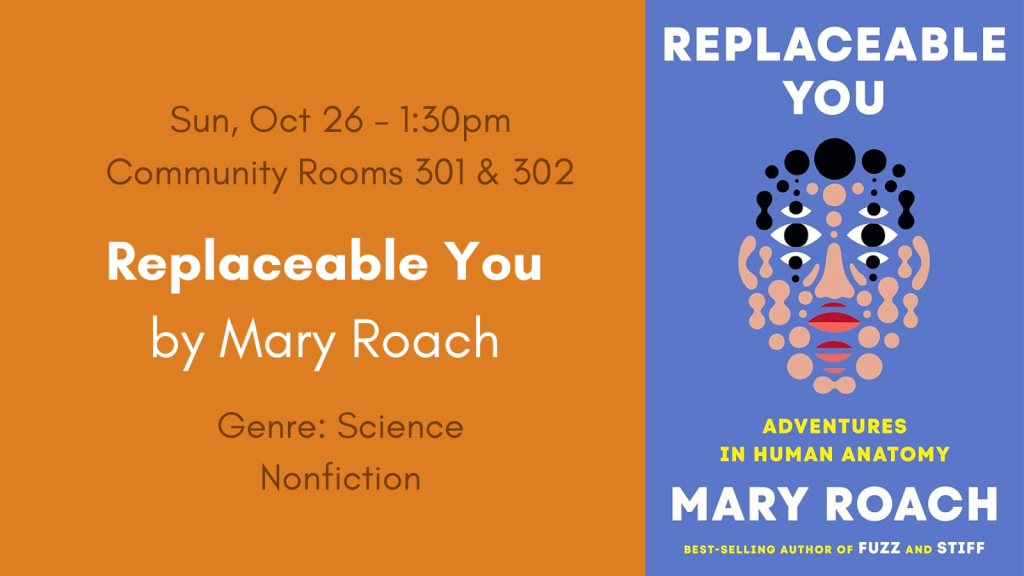
The body is the most complex machine in the world, and the only one for which you cannot get a replacement part from the manufacturer. For centuries, medicine has reached for what’s available—sculpting noses from brass, borrowing skin from frogs and hearts from pigs, crafting eye parts from jet canopies and breasts from petroleum by-products. Today we’re attempting to grow body parts from scratch using stem cells and 3D printers. How are we doing? Are we there yet?
In Replaceable You, Mary Roach explores the remarkable advances and difficult questions prompted by the human body’s failings. When and how does a person decide they’d be better off with a prosthetic than their existing limb? Can a donated heart be made to beat forever? Can an intestine provide a workable substitute for a vagina?
Roach dives in with her characteristic verve and infectious wit. Her travels take her to the OR at a legendary burn unit in Boston, a “superclean” xeno-pigsty in China, and a stem cell “hair nursery” in the San Diego tech hub. She talks with researchers and surgeons, amputees and ostomates, printers of kidneys and designers of wearable organs. She spends time in a working iron lung from the 1950s, stays up all night with recovery techs as they disassemble and reassemble a tissue donor, and travels across Mongolia with the cataract surgeons of Orbis International.
Irrepressible and accessible, Replaceable You immerses readers in the wondrous, improbable, and surreal quest to build a new you.
